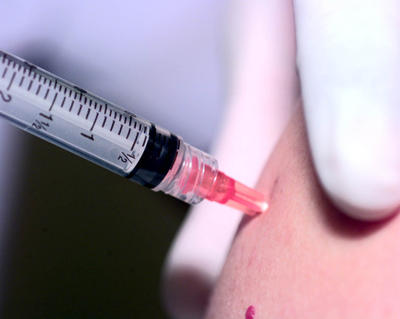
Source: dictionary.reference.com
Vaccination is a method used to induce immunity or resistance to infections which are commonly found within a community. These infections when they occur can result in significant complications and even deaths. The process of vaccination, contrary to common belief, predates Edward Jenner and his famous cowpox vaccine. Historical records in Chinese Medicine and Ayurvedic texts shows that the concept of vaccination was in practice centuries earlier.
Vaccines used are either killed or ‘weakened’ versions of a particular microbe or its by-product. When a person with a normal immune system is presented with these vaccines, an immune response is elicited whereby antibodies are produced against the diseases of which the vaccines were meant for. This results in a ‘protection’ against the particular infection, as although the antibodies will disappear with time, the body is now ‘primed’ for future infection. A forgive but never forget sort of thing going on.
During the manufacturing of vaccines, additives are added. This is done for various different reasons which include boosting a vaccine’s strength, to act as a stabiliser or preservatives as well as to prevent contamination by other dangerous and unwanted micro organisms. Additives can be in the form of antibiotics and even elements such as aluminium or compounds like thiomersal. Depending on the ‘strength’ of each vaccination, the protection it confers for each disease varies from months to years or even a lifetime.
For this reason the vaccination schedule of any country is arranged in a way so that ‘protection’ can ‘target’ the age or season in which the person is most vulnerable to a particular infection. Certain vaccines require ‘booster dose’s after a certain lapse to ensure an individual is afforded further and prolonged protection. For example, because Haemophilus influenza B (HiB) can cause serious illnesses during early infancy and, this vaccine is offered in Malaysia during the 2nd, 3rd and 5th months of life with another booster at 18 months of age. In recent years, the study of vaccination is not only limited to conferring protection against infections. Scientists are now working on vaccines to prevent non communicable diseases like Hypertension and Alzheimer’s.
Dr Alya Hamzah is a paediatrician. She is currently serving in Kuala Lumpur. Learn more about her in The Team page.
[This article belongs to The Malaysian Medical Gazette. Any republication (online or offline) without written permission from The Malaysian Medical Gazette is prohibited.]
